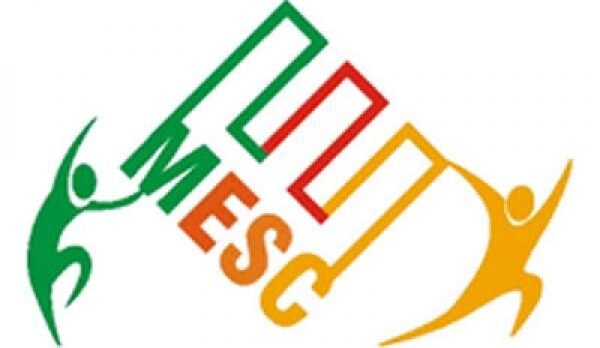Diploma in Sound Engineering
April 26, 2024 2024-06-13 11:08Diploma in Sound Engineering
Diploma In Sound Engineering
UGC Approved Courses
Top Instructors
In Campus Placements
We take pride in being pioneers in India, providing a Diploma in Sound Engineering
Placement Record
Average LPA
Alumini Network
We are well aware that choosing what to study at university is one of the most important decisions you have to make in life.
Diploma in Sound Engineering
1. Introduction to Sound Theory and Acoustics
Explore the principles of sound theory and acoustics, including waveforms, frequency, amplitude, and phase. Gain an understanding of room acoustics, sound propagation, and psychoacoustics.
2. Recording Techniques and Studio Setup
3. Analog and Digital Audio Technology
Explore the principles and operation of analog and digital audio equipment, including consoles, tape machines, and converters. Learn to integrate analog hardware and digital audio workstations (DAWs) for hybrid production workflows.
4. Mixing and Signal Processing
5. Mastering and Post-Production
6. Live Sound Reinforcement and Event Production
7. Sound Design for Multimedia
8. Music Business and Industry Insights
9. Capstone Project: Sound Engineering Portfolio
Apply your skills and knowledge to create a comprehensive sound engineering portfolio. Showcase your proficiency in recording, mixing, mastering, and sound design through a curated collection of projects.
After completing a Diploma in Sound Engineering, you’ll have a variety of career options in the audio industry. Here are some potential paths you could pursue:
Recording Engineer: Work in recording studios to capture and produce high-quality audio recordings for music, podcasts, voice-overs, and more.
Mixing Engineer: Specialize in blending and balancing individual tracks to create cohesive and polished sound mixes, often in genres such as music, film, television, and gaming.
Mastering Engineer: Focus on the final stage of audio production, refining and enhancing mixes to achieve professional-level sound quality for distribution across various platforms.
Live Sound Engineer: Manage sound reinforcement and audio production for live events, concerts, festivals, theater productions, conferences, and more.
Post-Production Sound Technician: Work in film, television, or gaming industries to edit, design, and mix sound effects, dialogue, and music for multimedia projects.
Studio Technician: Provide technical support and maintenance for recording studios, live sound venues, broadcasting facilities, and other audio production environments.
Audio Equipment Sales and Installation: Utilize your technical expertise to advise clients on audio equipment purchases, set up sound systems, and troubleshoot technical issues.
Music Producer: Collaborate with artists to guide them through the music production process, offering creative input, technical expertise, and organizational support.
Sound Designer: Create original soundscapes, effects, and atmospheres for various media, including films, video games, animations, and immersive experiences.
Acoustic Consultant: Offer expertise in room acoustics, sound system design, noise control, and architectural acoustics for commercial, residential, and industrial projects.
These are just a few examples, and the audio industry offers a wide range of opportunities for professionals with sound engineering skills. Depending on your interests and strengths, you may choose to specialize in one area or explore multiple paths throughout your career. Networking, gaining practical experience, and continuing education will also be valuable for advancing in the field.
1,75,000 Annually + 1000 Application form (Included University, Semester & Exam fees)
Admission Process
Online Application
Admission Test
Online Assessment
Personal Interview
Final Committee Decision
Our Affiliations





Why we are known for the Best Music College in India?

Pranay Kumawat
Music Producer
Ishita Parakh
Singer- Songwriter
Heena Gupta
SingerFAQ
1. What is a Diploma in Sound Engineering?
A Diploma in Sound Engineering is a comprehensive program that provides students with theoretical knowledge and practical skills in audio production, recording, mixing, and mastering. It typically spans one year and prepares individuals for careers in the audio industry.
2. What will I learn in a Diploma in Sound Engineering program?
In a Diploma in Sound Engineering program, you will learn fundamental principles of sound, acoustics, audio equipment operation, digital audio workstations (DAWs), recording techniques, mixing, mastering, and post-production. The curriculum covers both theoretical concepts and hands-on experience.
3. How long does it take to complete a Diploma in Sound Engineering?
A Diploma in Sound Engineering is usually a one-year program, although the duration may vary depending on the institution and the specific curriculum offered.
4. What are the career opportunities after completing a Diploma in Sound Engineering?
Graduates of a Diploma in Sound Engineering program can pursue various career paths, including recording engineer, mixing engineer, mastering engineer, live sound engineer, post-production sound technician, music producer, sound designer, studio technician, acoustic consultant, and more.
5. Is prior experience or knowledge in sound engineering required to enroll in a Diploma in Sound Engineering program?
While some programs may prefer applicants with a background in music or audio production, many Diploma in Sound Engineering programs accept students with diverse educational backgrounds. However, a passion for sound and music, as well as a willingness to learn and experiment, are essential qualities for success in the program.
6. What equipment and software will I have access to during the program?
Diploma in Sound Engineering programs typically provide access to professional audio equipment, including microphones, audio interfaces, mixing consoles, and studio monitors. Students also have the opportunity to work with industry-standard software such as Pro Tools, Logic Pro, Ableton Live, and Adobe Audition.
7. Will I have opportunities for hands-on experience and practical training?
Yes, hands-on experience is a crucial component of most Diploma in Sound Engineering programs. Students participate in recording sessions, mixing exercises, mastering projects, and live sound productions to apply theoretical knowledge in real-world scenarios and build their skills.
8. Can I pursue further education or specialization after completing a Diploma in Sound Engineering?
Yes, graduates of a Diploma in Sound Engineering program may choose to pursue further education, such as a bachelor’s degree in audio engineering, music production, or related fields. Additionally, professionals can pursue specialized certifications or advanced training in specific areas of audio engineering to enhance their skills and career prospects.
9. How do I apply for a Diploma in Sound Engineering program?
To apply for a Diploma in Sound Engineering program, you typically need to submit an application form, academic transcripts, letters of recommendation, a personal statement, and sometimes a portfolio of your work (if applicable). Check the admission requirements and application process of the specific institution offering the program.
10. What are the advantages of earning a Diploma in Sound Engineering?
Earning a Diploma in Sound Engineering equips you with the technical skills, industry knowledge, and practical experience needed to pursue a rewarding career in the audio industry. Whether you aspire to work in music production, film, television, gaming, or live events, a diploma in sound engineering opens up diverse opportunities for creative and professional growth.
Explore All Courses
Choose from more than 20+ options in music & technology.
